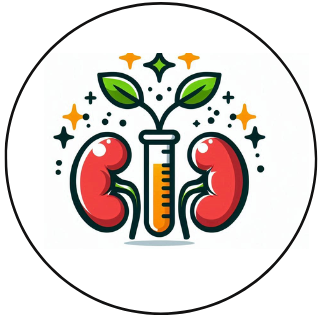
If you’re curious about kidney disease, you’ve come to the right place. Our kidneys are vital organs – they filter waste from our blood, regulate blood pressure, and keep our electrolytes in check. When they’re not working properly, it affects us in ways we might not even notice at first.
Let’s take a closer look at what kidneys do for us. Think of them as a highly sophisticated waste disposal system. They process a huge amount of blood daily, removing toxins and excess water, which we then eliminate as urine. This is key to keeping our body’s internal environment stable and healthy.
The tricky thing is, kidney disease can be somewhat of a silent issue. It progresses stealthily and symptoms might not appear until it has advanced. That’s why it’s so important to recognize the early signs. Catching it early can make a vast difference in treatment and can help manage the condition more effectively.
Commonly Known Symptoms of Kidney Disease
If you’re keeping an eye out for kidney disease, there are certain red flags your body might wave at you. It’s not just about unusual changes; it’s also about being mindful of how persistent these changes are. Here, I’m going to detail some of the more common symptoms that should set off your internal alarm bells.
Changes in urination patterns stand at the forefront. You might find yourself getting up more often at night to urinate, or you might notice your urine is darker or frothier than usual. These aren’t just random occurrences; they’re your kidneys signaling they’re struggling to filter your blood properly.
Then there’s the kind of tiredness that doesn’t go away with a good night’s sleep. If you’re feeling drained all the time, your body isn’t just being lazy. Persistent fatigue can be a sign your kidneys are unable to help produce erythropoietin, leading to anemia and that relentless sense of exhaustion.

Swelling or puffiness, especially in the legs, ankles, or around the eyes, can be pretty alarming. This can happen because your kidneys are supposed to help manage your body’s fluid balance, and when they don’t, that excess fluid has to go somewhere.
Unexpected shortness of breath might also be linked to kidney issues. This isn’t just about being out of shape; it could be due to fluid buildup in the lungs, or anemia, which leaves your body oxygen-starved.
Lastly, a metallic taste in the mouth is something many might brush off, but it could indicate toxin buildup due to poorly functioning kidneys. Plus, it can lead to bad breath, another common complaint that’s often not associated with kidney health—but should be.
Lesser-Known Early Signs of Kidney Dysfunction
You’re going to find out about some warning signals that are often overlooked when it comes to kidney health. These symptoms aren’t always the first ones you think of, but they’re just as crucial to note.
One sneaky sign is trouble sleeping. When your kidneys are struggling, toxins can build up in the blood, making it hard to catch those Z’s. And if you find your mind’s not as sharp, difficulty concentrating could also point to kidney issues, as the buildup of toxins impacts brain function.
Now, if you’ve been feeling less hungry or notice unexpected weight loss, your kidneys might be sending up a red flag. These symptoms can slip under the radar but indicate that waste products might be affecting your appetite mechanisms.
In my experience, most people don’t connect high blood pressure with kidney problems, but it’s a common sign. The kidneys play a critical role in controlling blood pressure by regulating fluid and salt balance. When they aren’t working right, your blood pressure can shoot up without a clear cause.
And here’s a symptom most people have never heard of: a consistent, mildly elevated body temperature, feeling warm without other signs of infection. This can happen when the kidneys aren’t fully clearing waste from your body, leading to a low-grade fever.
Remember, these symptoms don’t always mean you have kidney disease, but they’re a good reason to talk with a healthcare provider. Next up, I’m going to tell you what steps you can take if you’re noticing these signs, and we’ll explore how to keep your kidneys functioning at their best.
Taking Action: Next Steps and Prevention Strategies
Now that you’re aware of some early symptoms of kidney disease, both common and lesser-known, it’s crucial to know what to do next. Don’t worry too much about being a little anxious; it’s normal when you’re dealing with health concerns. However, I’m here to help you with clear and actionable steps.
First off, if you’re experiencing any of these symptoms, it’s important to consult with a healthcare professional. They will likely recommend a series of kidney function tests to get a better picture of what’s going on. Remember, catching kidney disease early can make a significant difference in treatment outcomes.
Besides medical support, there are lifestyle changes you can make to support your kidney health. Choose something that resonates with you, whether it’s adjusting your diet to reduce sodium and protein intake, managing hydration, or exercising regularly. Remember that small, consistent changes are often more sustainable.
Managing underlying conditions such as diabetes or high blood pressure is also key since these can contribute to kidney damage. This means closely monitoring your health, taking prescribed medications, and having regular consultations with your healthcare team.
Finally, you’re not alone on this journey. There are plenty of support groups and educational resources that can offer guidance and camaraderie. Lean on the experiences of others and use what you learn to empower your own health choices.
I truly hope this information has given you a solid foundation to be proactive about kidney health. Remember, your first attempt at adjusting to healthier habits doesn’t need to be your last; you can always refine your strategies as you go. Take the first step today.
Below is a video to help recognize early symptoms.
Kidney Disease: Who’s at risk, 6 Early Signs and the Tests you need.
